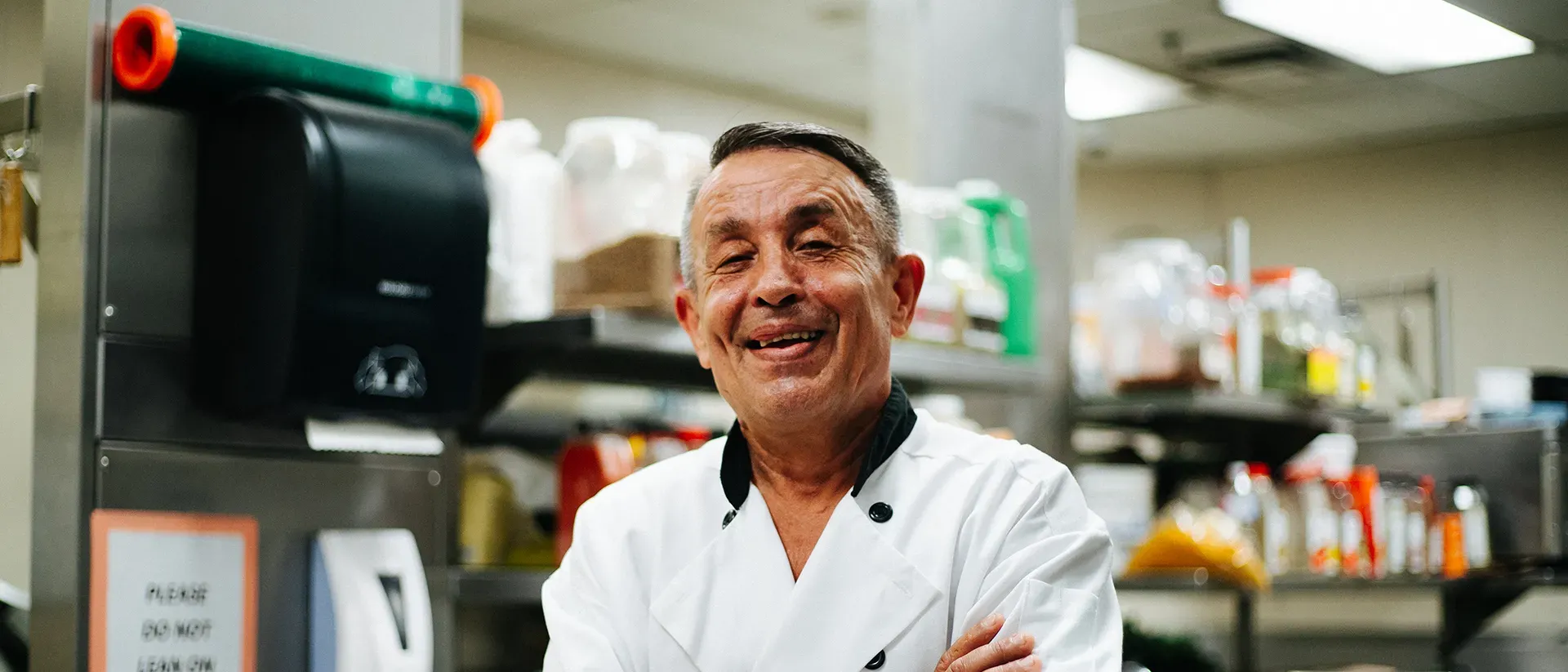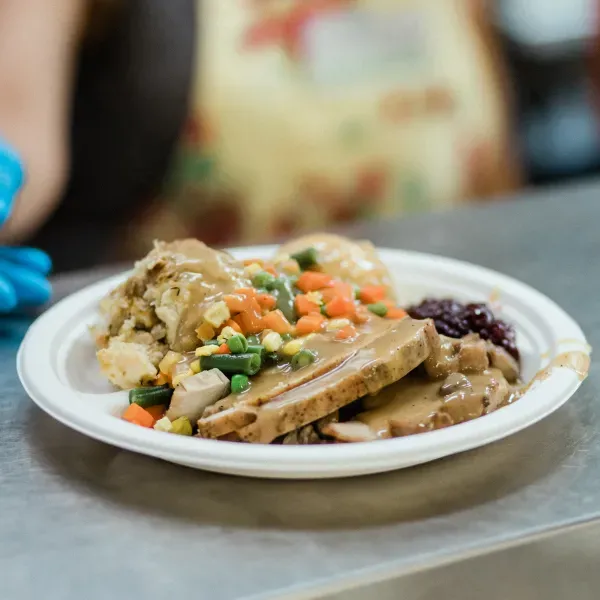[Content warning: This story mentions abuse. Please read with care for your own well-being.]
If you happen to visit UGM for lunch, you’re likely to see Aurel beaming out from behind the service counter. He is in his element in the kitchen, working as an intern and bringing the flavours of his Romanian childhood to the meals prepared for community members and staff every day. Aurel has travelled across the globe — and through hard seasons — to finally come to a place of forgiveness and belonging. Read on to hear his incredible story of hope.
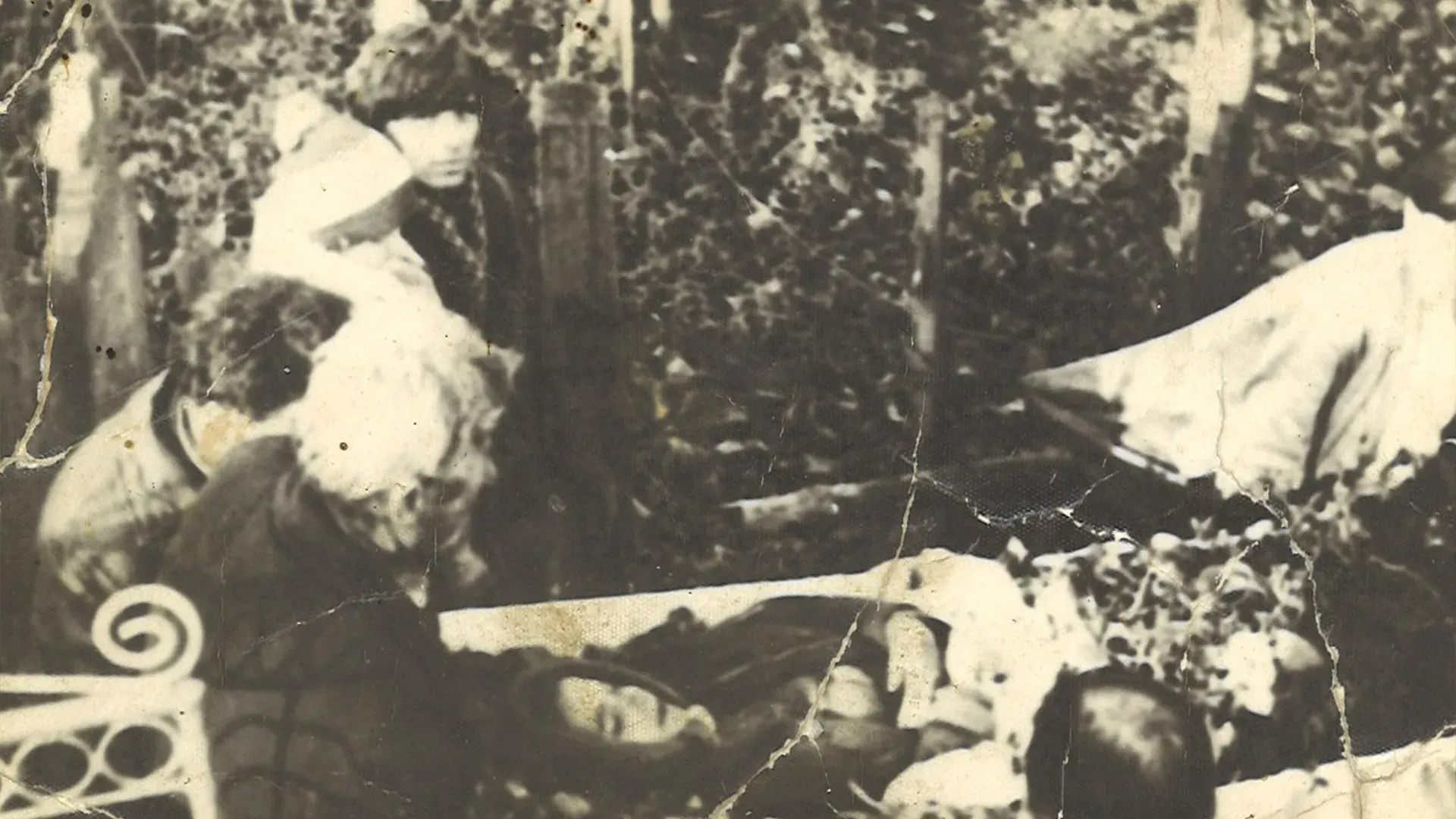
Tough beginnings
I learned early in life how to survive. I was the oldest of five siblings, and our life in Romania was very hard: my father was a violent man, and our mother died when I was 11. It was my job to take care of my younger brother and three sisters, and we didn’t have enough to live on. When you grow up around violence and hunger, you learn to protect yourself: I was a rebel in school, and I did whatever I had to do to provide for my family. I learned to be dishonest, learned to lie, because that was the way to survive.
I think not having any support growing up taught me that if I don’t do something, nobody will help me. That’s affected my life. I wasn’t able to see it then, but I can see it now: how beautiful things are when you can say “I need help.” I think that’s one of the most powerful strengths a person can have, but it took me a long time to learn that.
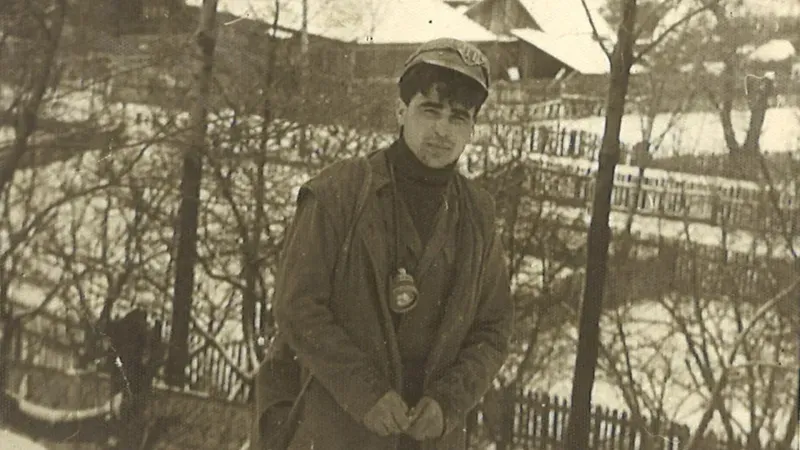
Searching for opportunity
When I was 23, I tried to leave Romania for the first time. I was hoping to find more opportunities and send money back to my family. But I was caught: they sentenced me to a year in prison, and I served four months before I was granted amnesty. I waited half a year and tried to escape again, and then the revolution started. I was brought to Canada in February of 1990 as a political refugee, and I couldn’t believe it — I had never thought of Canada as a place I would get to live.
I landed in London, Ontario, and those first years were difficult. I came alone, and I didn’t know anyone or speak the language. Sometimes, I regretted my decision to leave Romania. Eventually, I met some people who were also Romanian, and they connected me with work running a food cart. But I fell onto the wrong side of the law: I could make more money selling drugs, and I was eventually caught counterfeiting money. Many of my friends at the time were deported. I was sent to prison.
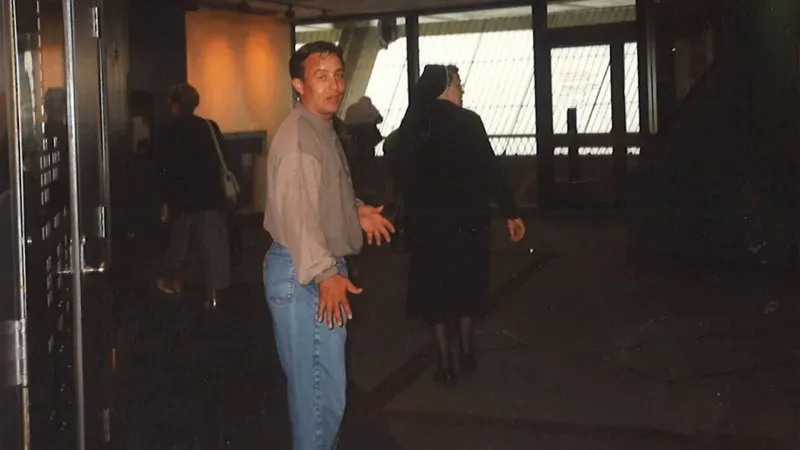
A taste of hope
After I served my sentence, I realized I was tired. I knew I couldn’t keep going the way I’d been going, and so I moved to BC in search of a fresh start. I was staying in a shelter in Marpole because the city was very expensive, and for some reason I got it into my head that I needed to go to church. To this day, I’m still not sure why. A man with me at the shelter was going to a service, and I decided to go with him. The moment I walked into that church, I felt this peace like someone I couldn’t see was standing beside me. Suddenly, I wasn’t alone.
I went up to the front for prayer, and a man in a suit came over to me. I was wearing an old pair of jeans and a t-shirt, and I thought “This man can’t pray for me. He’s wealthy, and I’m not doing very well.” But he prayed for me, and at the end of the service, he called out my name — he remembered me. He invited me to lunch with his family. Inside, I was so happy, even though I was shy. The next morning, he called the shelter where I was staying and began to connect me with a place to stay and work to do. At the time, I didn’t understand that kind of generosity. Thanks to him, I opened up a construction business, and I did very well for the next 12 years. I met my wife, Helen, at church, and we had a good life together. That was a beautiful time.
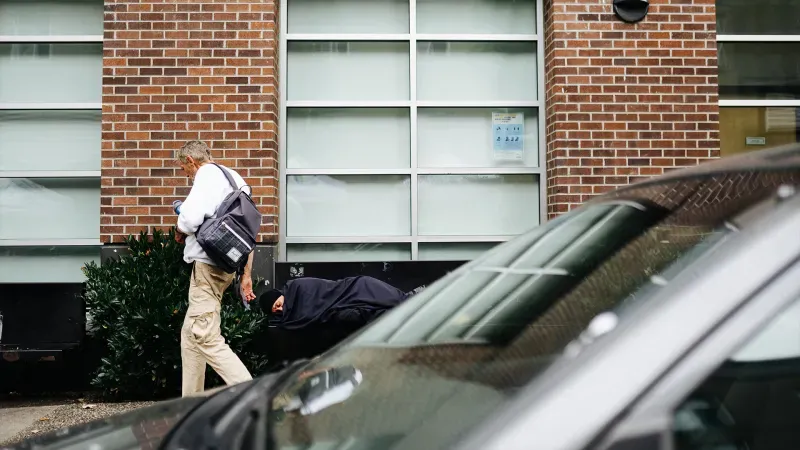
Barriers to trust
Even though my life was so much better in so many ways, I still struggled to trust people. Because of my difficult childhood and my choices growing up, I assumed people were not going to trust me either. I was not able to communicate what was in my heart, and I was afraid. That affected every aspect of how I lived.
It eventually came to light that, while my business was very successful, my accountant had not been filing our taxes correctly, and the government was now involved. I remember my credit card was cut off while I was on vacation in Calgary with Helen: it turned out I owed more than $400,000. I dismissed my workers because I couldn’t pay them, and I couldn’t face their disappointment. I was so ashamed.
I couldn’t work anymore. I couldn’t have a bank account. I couldn’t deal with the stress, and I tried to lie to Helen, to hide my failures. I couldn’t ask for help. But eventually, I couldn’t lie anymore either, and I walked out. It was the most painful thing I’d ever done. I couldn’t turn back, I couldn’t reach out to my friends, and I couldn’t forgive myself. To try and escape, I drank. Over the next four years, I slept in shelters and on the street, hoping to outrun my depression. I was supposed to take care of everything, and I’d failed.
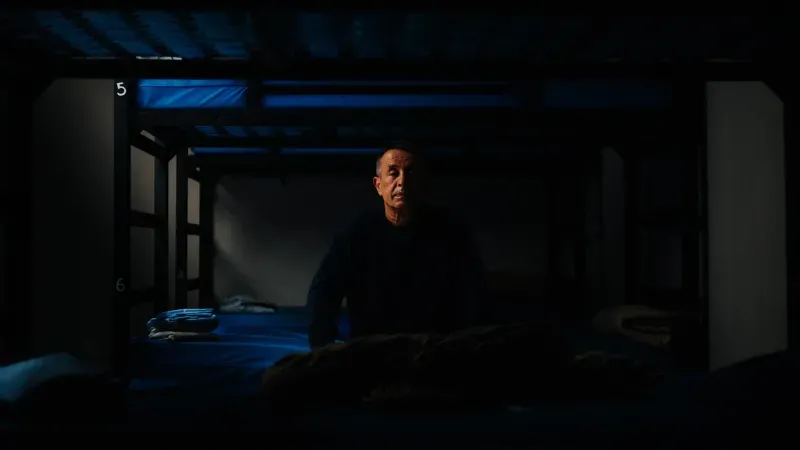
Leaving isolation behind
When I came to UGM, I was drowning in shame. I couldn’t face people anymore. I couldn't even face myself in a mirror. But a friend was at the door, and they invited me in.
My recovery was difficult: I had times where I relapsed. I couldn’t lift my head up. Finally, I said to myself “I can’t do this anymore. I must forgive myself.” I called out to God for help. And something very, very powerful changed inside me. I felt gratitude. I started being able to see the love that surrounded me. I was able to trust people, to talk with them, to see hope. I couldn’t do anything about the past, I couldn’t do anything about the future, but God gave me peace of mind for the present. I recommitted to staying at UGM, and trying sobriety again.
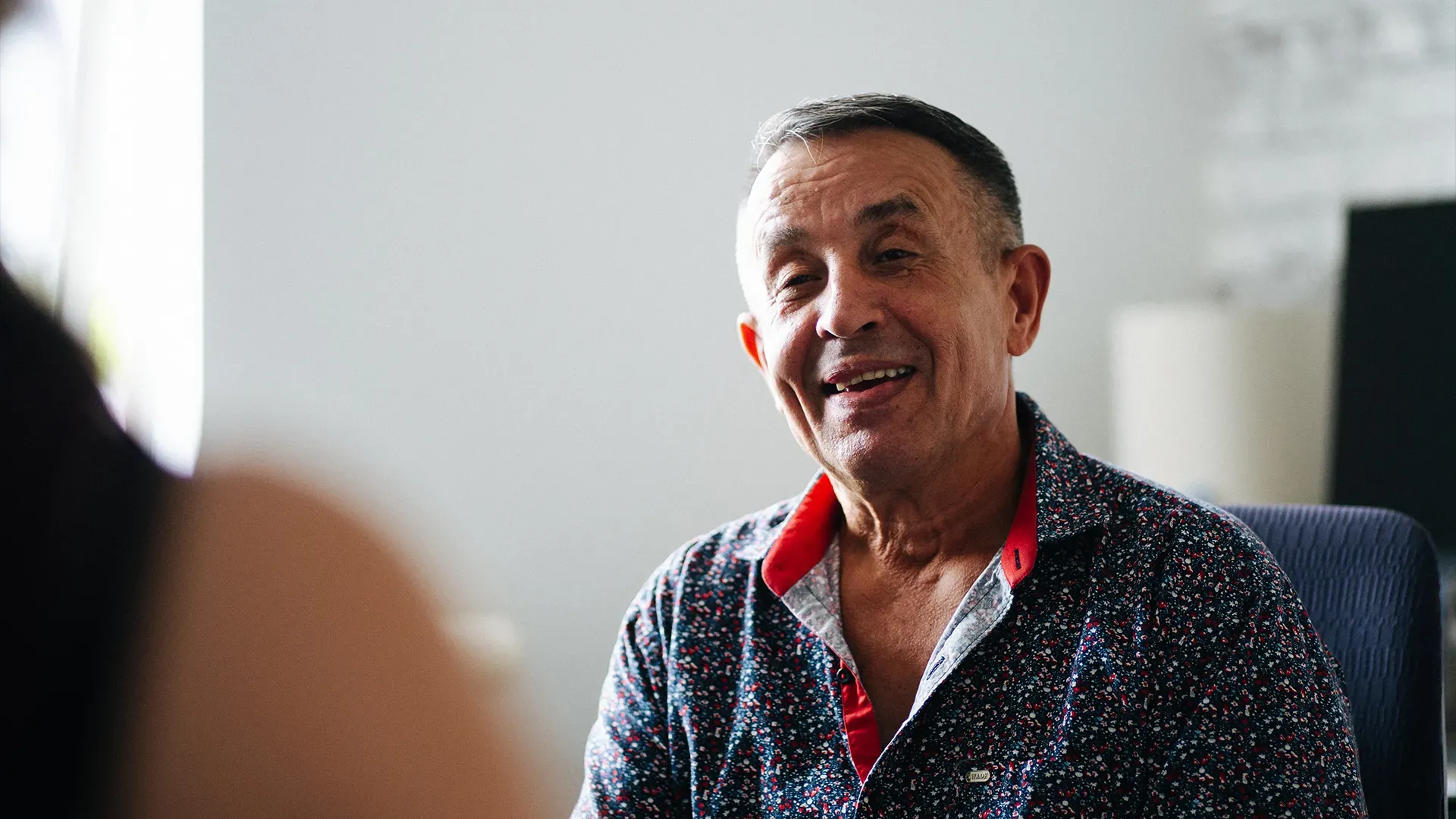
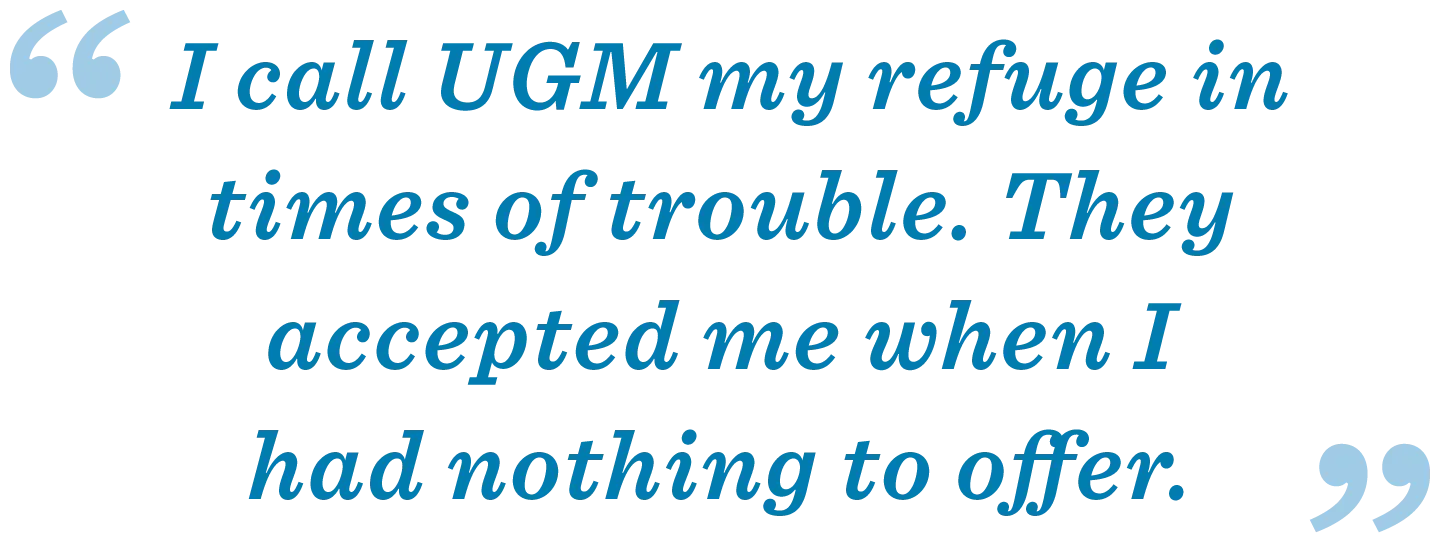
I think when you start to know God a little bit, you hear his voice. God loves you and he has plans for you. He had plans for me. As I recovered, I realized I didn’t want to go back into construction. I remembered how much I love to cook, and I reached out to Randy, UGM’s Kitchen Manager, to ask if he ever took on interns. He said, “No, but I would love you to be here with us.” They opened up an internship for me. I began cooking every day, and then at one point, the team said, “Aurel, we’d like you to give us the menu for next week.” I was shocked. I’m not a Red Seal chef. But with the Lord’s help, I did it. I’m learning more and more, because I’m no longer afraid to ask. I’m a beginner again.
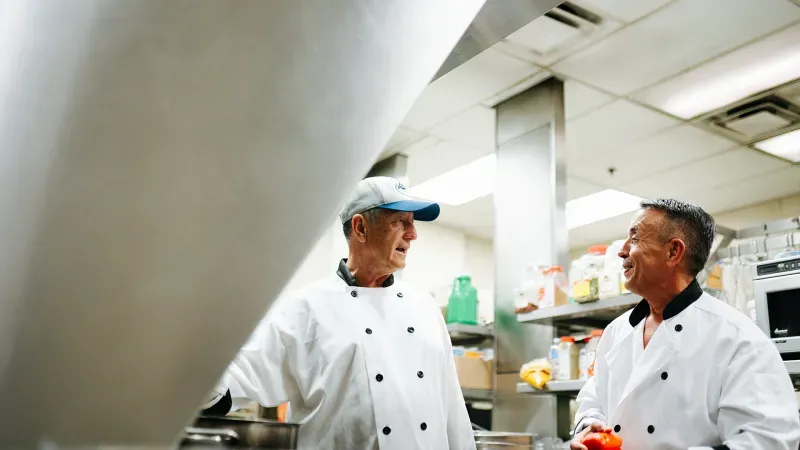
Trust for today
This past summer, I had one year of sobriety. I've been talking with my ex-wife Helen — I’m so grateful that we're friends. She was in a car accident not long ago, and I was able to visit the hospital while she recovered, to receive forgiveness from her family. I speak with my sisters in Romania every week, and my nieces recently came to see me. I think this is the best season of my life. I love cooking for people. I love helping people.
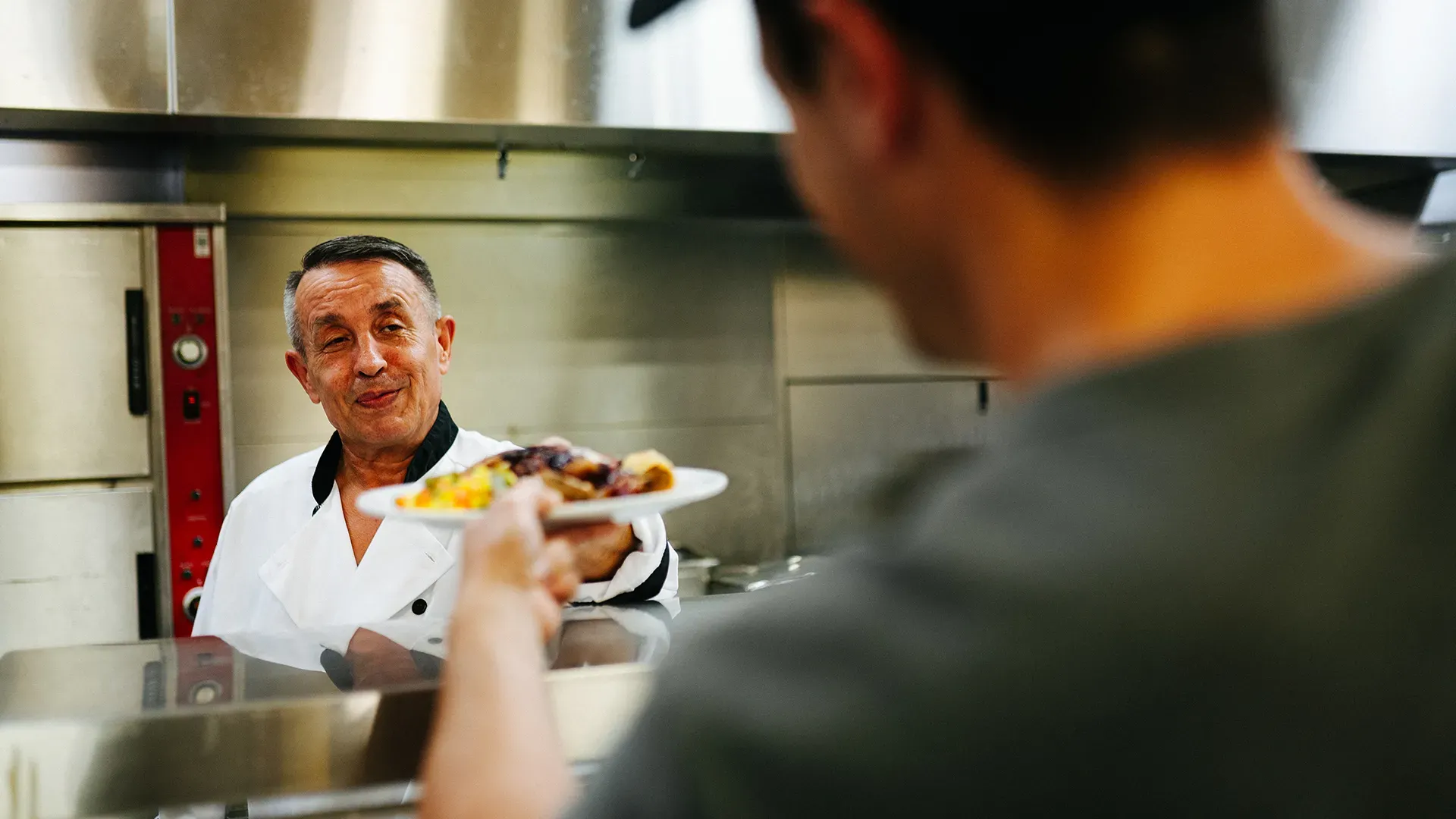
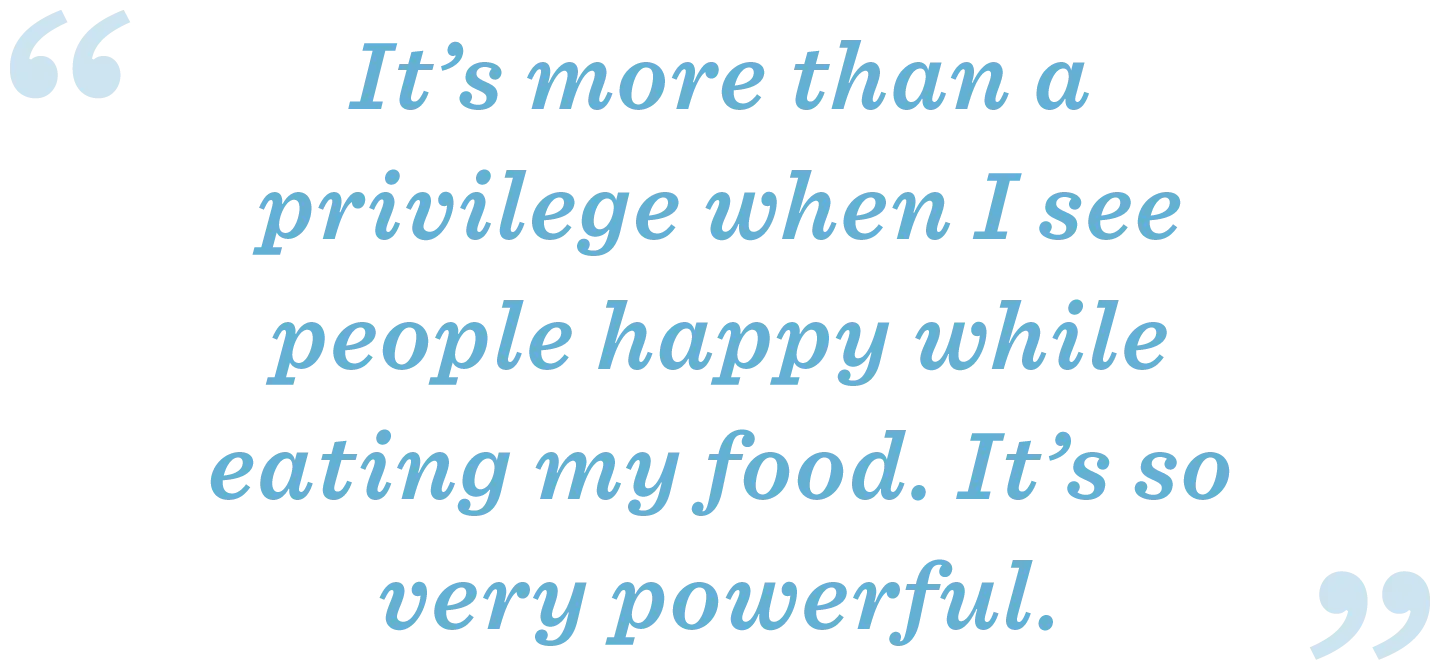
I think the most important thing is today. That doesn't mean that we don't have any goals, or we don't have dreams. It's beautiful to dream. But my trust is in God. He never lets me down, He stays with me in my trials. He helped me see beauty. Why should I be ashamed? Today, I live in grace.
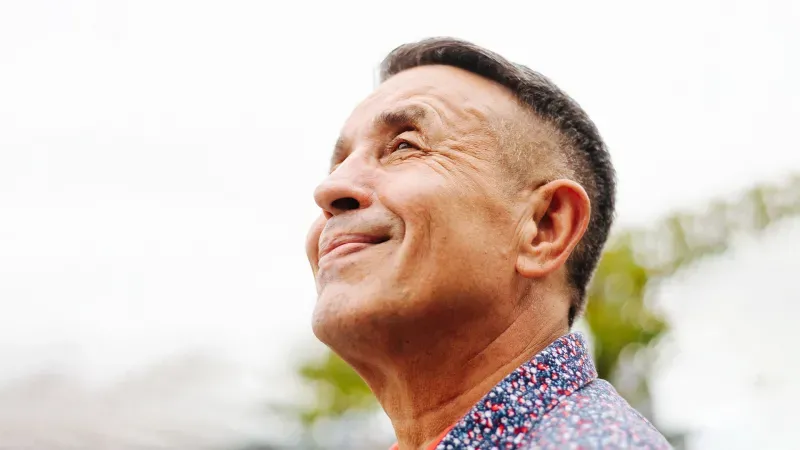
President's Message
Above all, keep loving one another earnestly, since love covers a multitude of sins. Show hospitality to one another without grumbling. As each has received a gift, use it to serve one another, as good stewards of God's varied grace. — 1 Peter 4:8–10 (ESV)
This fall, I find myself thinking about partnership. No one person — and indeed, no one organization — can solve all the problems facing our communities today. Our neighbours are navigating overwhelming challenges. Challenges like homelessness, poverty, and addiction, and the resulting crises of diminished mental health, increased desperation, and painful isolation. Alone, we risk seeing people slip through the cracks.
But together: that’s where miracles can happen. When you give your time, your resources, your attention, God takes these gifts and multiplies them. In John chapter 15, Jesus calls us, very simply, to partnership. “This is my commandment, that you love one another as I have loved you” (John 15:12). When we sincerely care for each other, we start to build networks of hope, possibility, and flourishing.
The importance of belonging is apparent for Aurel: learning to trust and experience God’s love has opened his heart to see the beauty in life. It strikes me that stories like these wouldn’t be possible if someone hadn’t reached out to connect, to offer help, to come up with new ideas and set out on new initiatives. This is what you do each and every time you support UGM: you hold out a hand to your neighbours and offer possibility.
The truth is, we need each other. And in the face of widespread systemic injustices, we need each other even more. Thank you for partnering with UGM as we work together to share the abundant love of God with our neighbours. It’s through the strength of many that barriers can fall and our communities can experience transformation.
In faith and hope,

You Can Bring People Together This Thanksgiving
For $5.45, you can give the gift of a hot Thanksgiving meal. For many in our communities, a hot and hearty meal shows them that someone cares and can be the first step into long-term stability and transformation.

